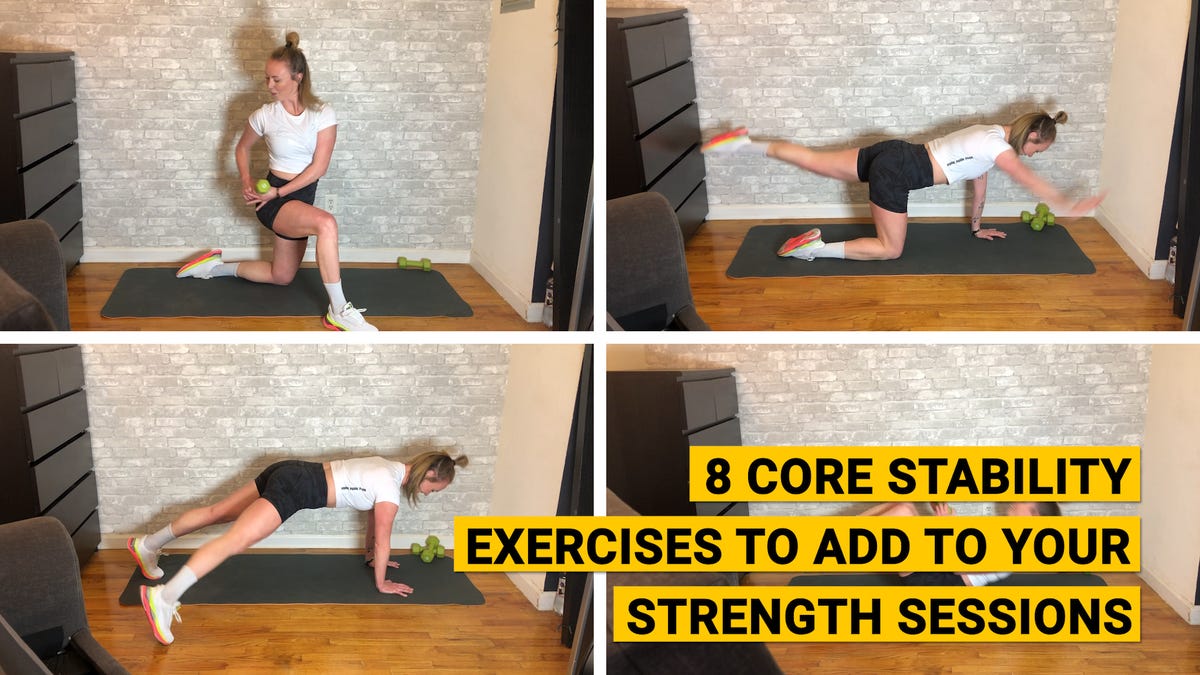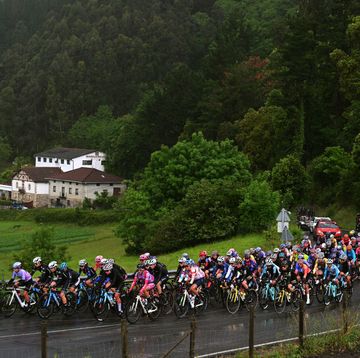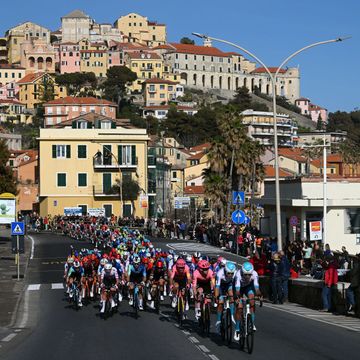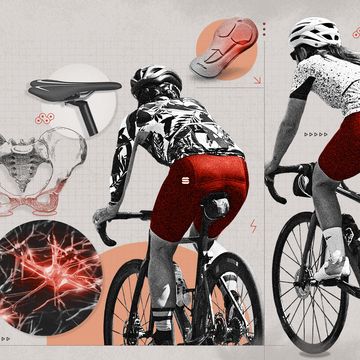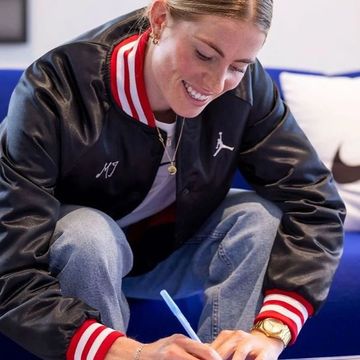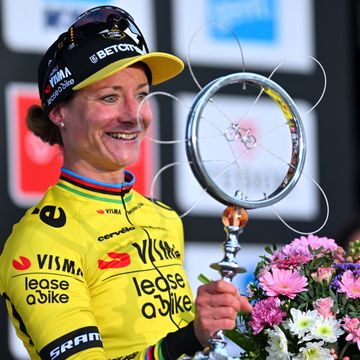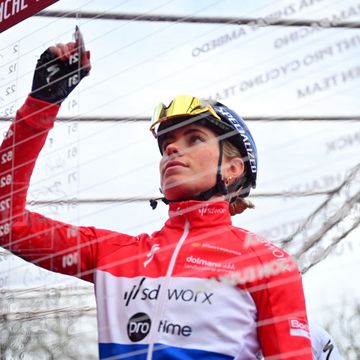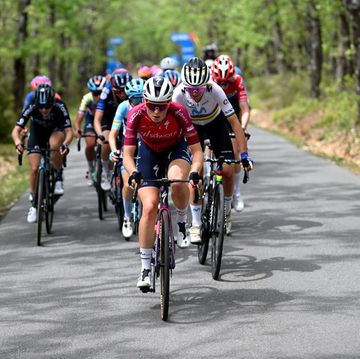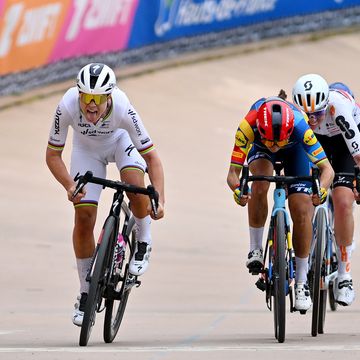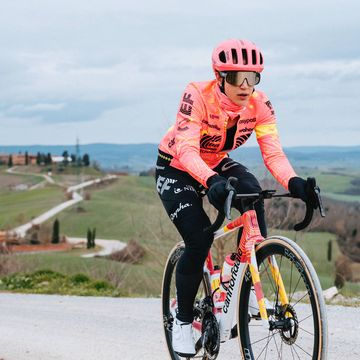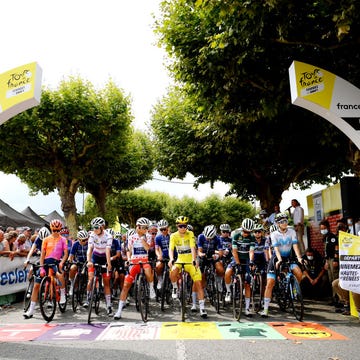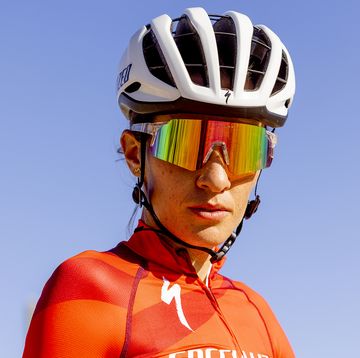By now, pretty much everyone knows the story of Evelyn Stevens, the investment banker who first jumped on a bike back in 2007 and quickly discovered she had superhuman talent. Six years later she has become perhaps the most well-known—and beloved—American in the women’s pro peloton.
What you may not know is this. She punctuates many of her statements with a rollicking giggle. She carries a really big purse. And she loves to talk about women’s cycling, but is quick to temper her strong opinions with examples of what the sport does well. She doesn’t want to undermine her message by suggesting that she and her contemporaries are ungrateful.
Above her upper lip are faint remnants of the lacerations she sustained during a crash this past spring that damaged her front teeth, left her with 40 stitches, and a concussion—and kept her from defending her 2012 Fleche Wallonne title. Behind her twinkly eyes and easy smile lies something you might not expect from such a fierce competitor: a hint of self-doubt. Turns out she is human like the rest of us.
We sat down with her in New York City at a recent clinic for CYCLE Kids, a nonprofit for which Evie is an ambassador.
Bicycling: Do you remember your first ride as a kid?
Evelyn Stevens: Everybody asks me that, and I don’t! I grew up with a bike. I was the fourth of five kids. My parents let me ride my bike to the store, we lived on a dead end and I could ride my bike there.
But I do remember getting my first bike. It was a Univega. I got it for Christmas. A ten-speed. I was 6, 7, 8. I don’t remember exactly. I was young, though. It was so cool to have a bike. The feeling I had on the bike when I was 10 is very comparable to the feeling I have now.
In what way?
When it’s raining and I’m tired, do I look like I’m suffering? Sure. But I get on a bike and I just smile. Everyone asks what my parents thought about me transitioning from making a lot of money—well, not a lot of money, but compared to a pro cyclist, quite a bit—to this lifestyle. Right away my mom said to me, “You look like a kid.” And for her to see me with that joy…
If you’re out riding, and there’s that person who yells and honks, I don’t want to yell back. I want to say, “Come on out and get on my bike. Feel the freedom, feel the air, you can see so many different things!” I love the Citi Bike program in New York City. You get on a bike and ride, and it’s so much better than walking or running, you can do so many things with it.
What have you learned about yourself through cycling?
That’s a tricky question. I’ve learned so much. One of the main things is realizing how intense a human being I am.
The whole investment banker thing didn’t clue you in?
[Laughs] I always thought I was pretty mellow, that my friends were more intense than me. But I realize that I have this intensity and I have to use it correctly. I know how to use it on the bike, but when there’s something I care about off the bike, focusing on that, learning how to turn it on and off, and controlling it. Otherwise the intensity can spread into everything and you’re just a neurotic human being and no fun to be around.
Is it about channeling it?
Yeah, it can be a very powerful tool if used in the right way. In professional cycling and competing, you have to have a good physiology and all these things, but it’s mental. If you can’t get yourself in the right mental space, you’re not going to be able to compete. There are times I am mentally very strong, and times I am mentally very weak. It’s learning how to control that, to channel it.
Describe a moment of Evie being mentally weak. I don’t think people see you that way at all.
[Laughs] I’m not sure I want my opponents to know this, but I struggle so much in the sense that I came into the sport late. I was never a top athlete; it’s really hard for me to think I’m the best. Look at Marianne Vos. She starts that race and she has no doubt in her mind that she’s the best. I read Pete Sampras’s autobiography, and he talks about how it wasn’t about if he was going to win Grand Slams, it was when. This mentality that you can deliver the best results.
There are some times when I’m on the start line and I know I can do it. At Fleche Wallonne, the year I won [2012], I had this feeling of “I can do it.” And then there are other days, usually when I’m tired physically or emotionally, when the doubts creep in: “I’m not really good enough.” I’m learning how to shut those out and what I can control. Obviously bike racing is not something you can completely control, but you learn what you can control and to be OK with the chaos around you.
How do you shut this stuff out?
For me, it’s preparation. To know that I’ve done the work. I do really well knowing that I’ve studied X course, I’ve trained, I’ve slept a lot, I feel really good about my nutrition. It’s this idea that you’ve controlled all the variables you can, and that when you get to the start line, there’s all the stuff you can’t control. I’ve controlled what I could and now I’m ready to go. That’s what I find the most beneficial. And to remove expectations. Sometimes people will think, If I win this, or if I don’t win this. I just try to start at the start line and think, Wow, how lucky am I? Like at the World Championships [this past September], How lucky am I to have the chance to compete to be the world champion? How many people have that opportunity? And to recognize that no matter what’s going to happen at kilometer 140, that at kilometer zero I have this chance to make the most of it and to remove the expectations. I try to block everything else out and to be present on the bike.
Talk to me about your highs and lows this season.
Well, 2012 was an incredible season. It was better than I could have ever expected. As for 2013, it was a year that’s going to make me better in the long run. I had the crash [in March, at the Classica Citta di Padova], and it really took a toll on me mentally, physically, and emotionally. As a female, to have your face deformed, it was really quite a blow.
In what way?
I knew I was scary looking by the reactions I received from people. I actually didn't look at my face for a week. Eventually it would heal, so I thought no need to get even more upset by looking at it, plus I don't do well with blood. It was hard being in public because people would stare and gawk. The worst part was that my lips were so cut up that I couldn't smile, which made me feel sort of trapped. I still have scars. Some days they bother me but most days I try to embrace them, they are now part of who I am.
Afterwards, I probably came back a little too eager. There were ups—Tour of California time trial, the Philadelphia Cycling Classic [she won both].
Philly was one of my favorite results because I’d had a bad National Championships, but the team still believed in me, and they rode for me. To deliver when they ride for you is really special. It’s always hard to have your teammates ride for you and you don’t deliver, which happened at the Giro Rosa. It happens, and sometimes you have to fail to get better. I gave everything [at the Giro Rosa], but this year I had a few more health problems (all from the crash), and it has a long-term effect on you.
This year made me appreciate when things go well. I loved winning the World Championship team time trial in 2012, but this year it was so special. To win it with your team, to realize there’s no other time in your life when you go on the podium together to have that celebration together.
Your thoughts about the state of women’s racing.
It’s an exciting time. When I first started, there wasn’t even this discussion. It was like, “Yeah, you’re second class, but we’re not going to talk about that. You don’t have as many races, you get paid a massive discrepancy, yada yada yada.” But right now there is this discussion.
The number-one priority [should be] to get us on TV. People who watched the Olympics, people who watched the World Championships, any of the World Cups... Honestly, it sells itself. It would be great if the UCI worked with Eurosport and said, “We’re going to put them on television, this is how we’re going to back women’s cycling.” If they’d, say, have nine episodes where you’d feature a few of the women, and you show the race, so people have an idea who to follow and they become invested in it.
I mean women cyclists are really interesting. Different ages, different backgrounds. If you’re doing the sport, you’re tough. This is not an easy lifestyle. You travel just as much as the men, if not more. You train just as hard. Yeah, our races aren’t as long, but if they were, we could do it. I don’t think anyone actually wants to watch the men race 200K. The women’s races are so hard; we go from the gun.
Marianne Vos, she’s raising the bar for women’s cycling because she is so good that everyone has to get better. It keeps us all on our toes. It’s an utter disappointment to me that the big American races don’t have women’s bike races. People can say money, sponsorship, logistics, there’s always excuses. There must be sponsors out there.
It’s such a fine line as a female athlete to even say that, because often people say you are complaining. I mean Philly? It was fantastic that they put that race on. And the Tour of the Gila. There are a lot of supporters in the US and I don’t want to seem like we’re not grateful and appreciative and recognize the time and effort that goes into supporting those races.
But I can’t believe that during the Tour of California time trial, they cut the coverage. Alison Powers and I are literally going neck and neck to the base of the climb, and then they cut it.
To me women’s cycling is a no-brainer for a sponsor. It’s a pretty good bargain, you get a lot of coverage, you have really great spokespeople. If I were a company, I would definitely give my money to women’s team not a men’s team. Maybe one day Specialized will have a men’s team as part of our women’s team! We would have the bus and they would have the camper. [laughs]
It would be great if there were a women’s Tour de France. The Tour transcends cycling. Some people say it’s too big to start out with. But I say, “Might as well go to the top right away.” Maybe not three weeks, you could start with ten days. Just to get that coverage out there is really great.
What are your thoughts on safety in women’s races? Much of the field withdrew from the Giro della Toscana this year because of safety issues.
A lot of races are run well. The problem with women’s racing is that we don’t have as many races, and so we’re willing to take different standards. Toscana was a really good example of us coming together. I mean it’s OK until someone is killed.
It was unfortunate that some riders were not able to withdraw. A lot of it was team pressure. But to have Marianne Vos not start a bike race. You can tell that woman loves to compete. You can tell it was physically painful for her not to do that race.
What about goals for next year?
I would like to win a lot more bike races. This year made me a little bit hungrier. Last year was, “I definitely want to do well, how do I top it?” This year, it’s like I know I have it in there and I have to figure out the right balance and how to do it correctly. It’s a hard lifestyle. Living in Europe is really very challenging. I mean my [Dutch] teammate Ellen [van Dijk] didn’t even leave the continent the whole season. She stayed in Europe. She got to drive to most of her races, where the Americans, we’re over and back, over and back. I’ve been living out of a suitcase for months. You just do it. But I never really feel settled. It would be great if the European cycling community had to come over and race in America. [laughs] I can’t wait for 2015, when Worlds is in Richmond, Virginia. For all of them to have jet lag, and have food that isn’t familiar to them, it’s going to be great!
Watch race highlights and Evie's postrace interview from Stage 4 of the 2013 Giro Rosa:

